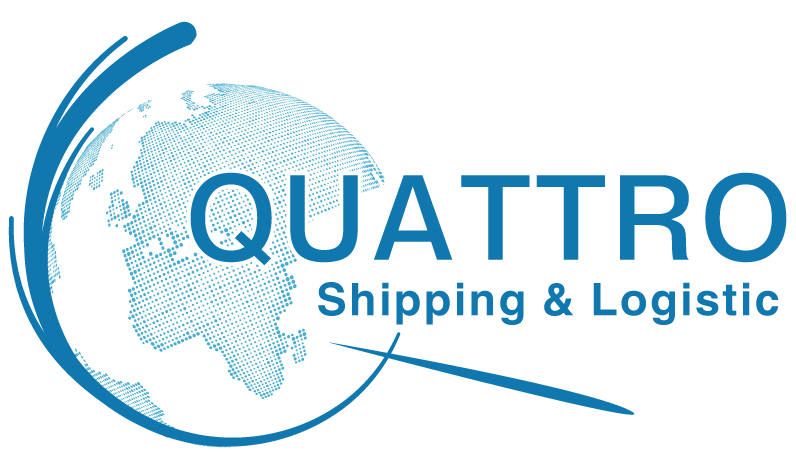Accounting Principles: What They Are and How GAAP and IFRS Work
However, the FASB and the IASB continue to work together to issue similar regulations on certain topics as accounting issues arise. Accounting principles also help mitigate accounting fraud by increasing transparency and allowing red flags to be identified. A negative write-off is essentially the opposite of a normal write-off in that it refers to a business decision to not pay back or settle the account of a person or organization that has overpaid. The difference between them is largely a matter of degree, but it’s also important to understand which one to use under what circumstances.
But, it must be noted that everyone can not avail of all the deductions because it is also based on several other factors like filing status, tax provisions, income, dependents, etc. As the result, the market value of the asset is equal to $ 180 million which led to the write-up of $ 30 million. The difference between the purchase price and assets’ fair value is $ 20 million will be recorded as Goodwill. Discover the importance of write up in accounting and its role in financial management. Gain a deeper understanding of how finance and write up procedures go hand in hand. CAs, experts and businesses can get GST ready with Clear GST software & certification course.
Some scholars have argued that the advent of double-entry accounting practices during that time provided a springboard for the rise of commerce and capitalism. Privately held companies and nonprofit organizations also may be required by lenders or investors to file GAAP-compliant financial statements. For example, annual audited GAAP financial statements are a common loan covenant required by most banking institutions. Therefore, most companies and organizations in the U.S. comply with GAAP, even though it is not a legal requirement.
Write up is essential for producing accurate financial statements, complying with accounting standards, supporting informed decision-making, and building trust with stakeholders. Write up plays a significant role in ensuring the accuracy and integrity of financial statements and reports. By performing write up diligently, companies can maintain financial transparency and make sound financial decisions for their long-term success. Write up in accounting refers to the process of adjusting and correcting financial records to accurately reflect the true financial position of a company. It involves making necessary adjustments to the general ledger, trial balance, and other accounting records to ensure that they accurately represent the financial transactions and events that have occurred.
Write up, as discussed earlier, refers to the process of adjusting and correcting financial records to accurately reflect the true financial position of a company. It involves making necessary adjustments to the general ledger, trial balance, and other accounting records to ensure the accuracy and reliability of financial statements. Write up primarily focuses on rectifying errors, omissions, and inaccuracies in financial records. It helps provide a more accurate and reliable picture of a company’s financial health. In summary, write up in accounting refers to the process of adjusting and correcting financial records to accurately reflect a company’s true financial position.
What is Write off or Expense off in Accounting?
A credit is applied to the equipment or whatever the inventory item is, and the total value is reduced accordingly. Note – All the above-listed terms are a part of non-cash expenses & are a part of the write-down, not a write-off. The term “Written down” refers to reducing the value of an asset in order to match its current market value. Whereas an asset is written off if it has become completely unproductive to generate any revenue. B)Record write-off expense on the debit side of the profit & loss account as it is an indirect expense for the company. If the FMV of Company B’s assets is determined to be $85 million, the increase in their book value of $25 million represents a write-up.
By performing these write up tasks, companies can accurately represent their financial position, performance, and cash flows in the financial statements. By diligently following these steps, financial professionals can provide transparent and reliable financial information that is crucial for management, investors, lenders, and regulatory bodies. During the course of business operations, various events and transactions occur that can impact the financial records. These can include depreciation of assets, adjustments for prepayments, accruals, and corrections to errors or omissions.
Direct Write Off Method & Allowance Method are the two methods to write off or expense off an asset. Just upload your form 16, claim your deductions and get your acknowledgment number online. You can efile income tax return on your income from salary, house property, capital gains, business & profession and income from other sources. Further you can also file TDS returns, generate Form-16, use our Tax Calculator software, claim HRA, check refund status and generate rent receipts for Income Tax Filing.
Financial Literacy Matters: Here’s How to Boost Yours
This is a relatively low value-added activity, so the fee charged to the client for this service is generally low. An accountant is most commonly hired for write-up work by clients who do not have any employees who are qualified to produce these reports. Unlike a write-off, which removes an asset entirely from the balance sheet, a write-down reduces the asset’s carrying amount. The primary implication of a write-down is its impact on the balance sheet, where the asset’s reduced value results in lower total assets and equity. On the income statement, a write-off results in an expense, which reduces net income for the period in which the write-off is recognized. This decrease in net income can affect financial ratios such as return on assets and return on equity.
Challenges in Performing Write Up
Generally accepted accounting principles (GAAP) are uniform accounting principles for private companies and nonprofits in the U.S. These principles are largely set by the Financial Accounting Standards Board (FASB), an independent nonprofit organization whose members are chosen by the Financial Accounting Foundation. Accounting principles are the rules and guidelines that companies and other bodies must follow when reporting financial data.
This method used when the company assets are not properly recorded in the initial recognition. Additionally, write up may involve adjusting the value of assets or liabilities to reflect their fair market value. This is particularly important when dealing with assets such as property, plant, and equipment. By revaluing these assets, a more accurate picture of a company’s net worth can be obtained.
The expense recognized from the write-off may reduce taxable income, thereby lowering your company’s tax liability for the period. This can improve cash flow in the short term, as less cash is required for how to file a tax extension tax payments. The term write-off or expense-off refers to the “elimination of an asset from the financial books” when it is no longer valuable to the business. During an asset write-up, special treatment for intangible assets and tax effects are considered.
A write-up is an increase made to the book value of an asset because its carrying value is less than fair market value. A write-up generally occurs if a company is being acquired and its assets and liabilities are restated to fair market value, under the purchase method of M&A accounting. It may also occur if the initial value of the asset was not recorded properly, or if an earlier write-down in its value was too large. The ultimate goal of any set of accounting principles is to ensure that a company’s financial statements are complete, consistent, and comparable. Write-downs and write-offs are two ways that businesses account in their financial statements for assets (including physical assets and outstanding credit balances) that have lost value.
International Financial Reporting Standards (IFRS)
- For example, assume Company A is acquiring Company B for $100 million, at which point the book value of Company B’s net assets was $60 million.
- They believe because companies do not have to follow specific rules that have been set out, their reporting may provide an inaccurate picture of their financial health.
- This is a relatively low value-added activity, so the fee charged to the client for this service is generally low.
- Generally accepted accounting principles (GAAP) are uniform accounting principles for private companies and nonprofits in the U.S.
- Clear can also help you in getting your business registered for Goods & Services Tax Law.
- The term “write-off” can also apply to the deductions that individual taxpayers take to reduce their taxable income, but that is a different meaning, as explained below.
Write-offs are the more severe and final of the two, indicating that the company believes the asset to be worthless. Both companies know that XYZ’s assets are undervalued if compare to the market as the majority of assets are not properly accounted, and the financial statements are never audited. During an asset write-up, intangible assets what does an auditor do and their tax liabilities are treated specially. A write-up means an increase in the book value of an asset as its carrying value is higher than the fair market value.
What Is a Write-Off on Personal Income Taxes?
For the past 52 years, Harold Averkamp (CPA, MBA) has worked as an accounting supervisor, manager, consultant, university instructor, and innovator in teaching accounting online. The Securities and Exchange Commission (SEC), the U.S. government agency responsible for protecting investors and maintaining order in the securities markets, has expressed interest in transitioning to IFRS. However, because of the differences between the two standards, the U.S. is unlikely to switch in the foreseeable future. The International Accounting Standards Board (IASB) issues International Financial Reporting Standards (IFRS). These standards are used in approximately 168 jurisdictions, including those in the European Union (EU). Before you post the journal entry, you need to determine the amount by which the asset’s carrying value exceeds its fair market value.

